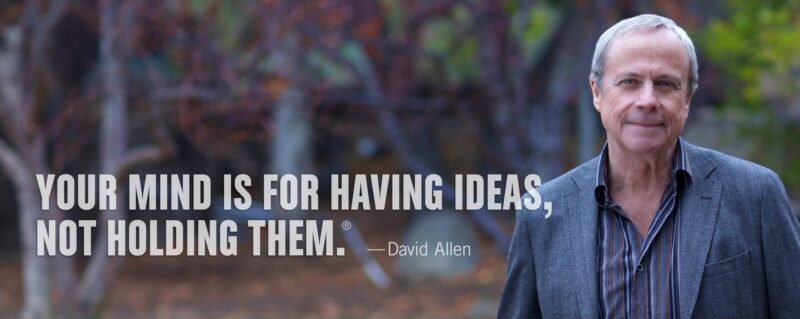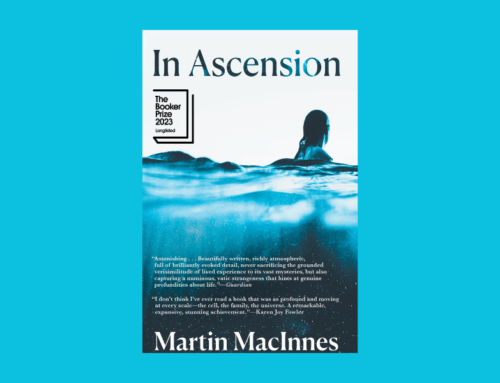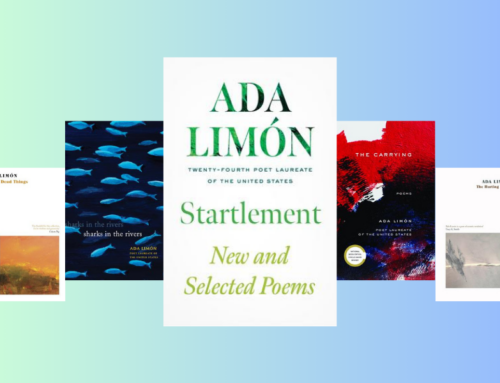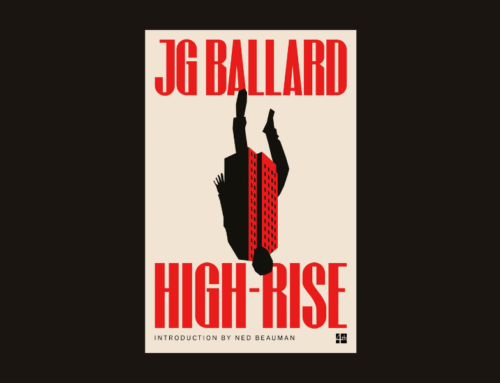By Hilda Bouma

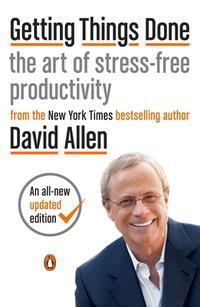 The American productivity guru David Allen wrote Team: Getting Things Done with Others, a sequel to his bestseller Getting Things Done. This article originally appeared in Het Financieele Dagblad on June 20, 2024. It’s been translated from the Dutch and edited slightly for space and clarity.
The American productivity guru David Allen wrote Team: Getting Things Done with Others, a sequel to his bestseller Getting Things Done. This article originally appeared in Het Financieele Dagblad on June 20, 2024. It’s been translated from the Dutch and edited slightly for space and clarity.
One in five Dutch employees has burnout complaints or work-related psychological fatigue. This also affects corporate leaders, according to research by Deloitte. Always having to be “on,” the constant stream of attention-seeking emails, exhausting video conferences, they make working unhealthy.
David Allen, the author of the 2001 self-help book Getting Things Done, has an answer. Together with Edward Lamont, he wrote a sequel to the bestseller about how to boost your own productivity: Teams: Getting Things Done with Others, about how you can do that with your team.
“We have filled a gap,” he says in his home in the Buitenveldert district of Amsterdam. “Over the decades, we have helped thousands of individuals increase their personal productivity, who then returned to their dysfunctional teams.”
There is now an R [copyright] sign behind the acronym GTD; the combination of letters from Allen’s method is a registered trademark. The principles of GTD also work for teams, he says. “The new book is not about the dynamics of teams, the mutual relationships, only about the mechanics. What is the purpose of the team meeting, and is it clear what is agreed and who will do what? It’s not rocket science, mind you. Unless you’re building rockets.”
Stuff
His book Getting Things Done: The Art of Stress-free Productivity from 2001 has been translated into 28 languages. Three million copies have been sold, including audio books. Apparently, it was a game changer, this method of getting your stuff—appointments, tasks, things you still have to arrange—out of your head and putting it away in notebooks, laptop folders or apps until the moment you take action. “People try to use their heads as an office, but it’s not suitable for that,” says Allen. “The brain is designed for thinking things up, not for remembering a list of tasks.”
Strangely enough, his method is most popular with the group that needs it least, he says, namely ambitious professionals who know the value of organizations and are already productive. What they especially need is space in their heads. “I ensure that they become more creative, innovative and intuitive.”
Dutch polder mentality
Allen has lived in the Netherlands for 10 years. What does he think of the way the Dutch work together? “The polder mentality!” he says. “In order to be able to cultivate the land, the Dutch had to build dikes together. That is cooperation of the collective for individual gain. That is still part of the DNA. Dutch people are not aware of it, but I see it around me.”
Getting things done together because it is better for everyone is something the Dutch are good at. All kinds of cities in the world are trying to copy the way people live here, says Allen: “Where else can you find a night mayor who ensures that Rembrandtplein is quiet at night? Where else do you see citizens abolishing the rules to make things easier?”
But do Dutch people also communicate differently? “I’m not so sure whether it’s really different,” he says. “But I appreciate your famous directness. Americans promise all kinds of things that they don’t deliver: ‘Oh, let’s get some coffee together.’ The Dutch don’t do that. At the same time, they are very elegant in their directness. Blunt? No. Straightforward. Without noise. My wife, who is also very direct, is happy that she will never be called a bitch here again. That way of communicating is normal here.”
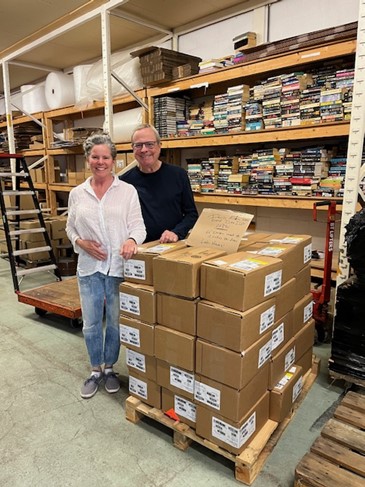 In love with Amsterdam
In love with Amsterdam
Allen and his wife are about to become Dutch citizens. The biggest barrier to this is speaking the language. A complaint from many expats: the Dutch speak English too well. “Besides, I still have to pay income tax in the United States, so I can’t completely cut myself off from that country yet. So there is no rush, but we are moving in that direction.” Little by little, he adds in flawless Dutch.
Why? “Because the United States doesn’t have the best reputation right now,” says Allen. “We love Europe. We moved here because it was time for a new adventure. We have no children, and my work has become increasingly global. We could have lived anywhere as long as it had a good airport. Milan, Stockholm, Copenhagen, London, even Kyoto—we love Japan, but that was too far from everything.”
It became Amsterdam, because Allen’s wife did not want to live further north due to dark winters. They were supposed to stay for a few months; it turned out to be ten years. “We fell in love with the city and have only fallen more in love.”
He says that prior to the move, he read the two well-known books by Russell Shorto, one about the Dutch colony of New Amsterdam, which later became New York, and the other about the history of Amsterdam itself, “the most liberal city in the world.”
“Then I thought: I’m not leaving, I’m going to the source! The Enlightenment started here. Many Dutch people do not know how unique their history is, because power here was not in the hands of the king or the church but was based on land ownership. As the Dutch say: God created the world, but the Dutch created the Netherlands.”
He enjoys cosmopolitan Amsterdam with its 172 different nationalities. “Every Dutch person over the age of 25 that I have met has seen something of the world. Most Americans don’t even have a passport,” he sneers.
Off the path
For someone known for inventing a method for getting things done, Allen has a surprising resume. For a long time, he didn’t know what he wanted to achieve. In 1968, he completed his studies in cultural history (intellectual history) at the University of Berkeley, California. The Summer of Love had just ended, the flower children were in power and young people, including Allen, were looking for the meaning of life and themselves. “I no longer wanted to read about people becoming enlightened, I wanted it myself.”
Allen went off the path after meeting a charismatic guy, a former Formula 1 racer who wore silk shirts with puffed sleeves and who not only taught Allen karate, but also briefly introduced him to heroin. Worried friends had him admitted to a psychiatric clinic in 1971. Allen would later describe the atmosphere there as being exactly like the film One Flew Over the Cuckoo’s Nest. [But] being admitted did give structure to his life again. But afterwards, so did membership in “church society”—The Movement of Spiritual Inner Awareness led by John Roger, also known as the mystic traveler.
Allen earned his money with karate lessons and jobs in companies founded by his friends. There, Allen, who describes himself as a lazy person, quickly wondered if there weren’t smarter ways to get the job done. “Over time, I discovered that there are people who actually get paid for such advice. They call themselves consultants.”
Having an empty head
And so it happened that from 1982 onwards, Allen hired himself out to improve business processes. Allen sees the next step, his successful management book Getting Things Done from 2001, as a logical progression. “Because of my experiences with meditation, spirituality and martial arts, I knew how important having a clear head is,” he says. “If you’re being attacked by four men in a dark alley, you don’t want to be distracted by 2,000 unanswered emails. So, when my own life became more complex, I started looking for techniques to keep a handle on things.”
Most books to improve your productivity, such as those by Stephen Covey, start from the values you should incorporate in your life as a guideline. [But] Allen’s…model is above all very practical, with advice such as: always immediately carry out a task that you can do in two minutes; and “an email that you have opened should never be returned to the inbox.”
His talent consists in the ability to find a model, a system, everywhere and then apply it to different situations. “I say that now, I was not aware of it at the time,” he says. To his own surprise, his method also turned out to work for a group of Lockheed managers, for whom he had put together a presentation at their request. “It turned out to be the ultimate audience for my message, a group of highflyers who were overwhelmed by a flood of messages and the demands of an increasingly flat organization.”
Everything is spirit
One of the biggest problems of our time, says Allen, is ambient anxiety: “The nagging feeling that you should be doing something more important than what you are doing. That you wake up at three in the morning thinking you forgot to do something. But once you have learned to clear your mind, you can focus your attention on something of your own choosing, at the moment you want to do so.”
The adolescent who uses LSD to figure out the meaning of life and the rational management consultant who trains thousands of executives to get things done are not two different people, Allen says. “Both are looking for what works,” he says. “I didn’t use drugs to escape, but to discover. It was the sixties. People seemed to have experiences in other realms and dimensions, I wanted that, too. But I haven’t done anything like that since 1971.”
Moreover, he adds, what is non-spiritual about being rational? “We are responsible for the things we set in motion in life. Completion and creativity, that’s what it’s all about. Everything is spirit. Everything is God, or energy, or karma, whatever you call it. I have studied the different paths to it. And I found one for which they were willing to pay me well.”

